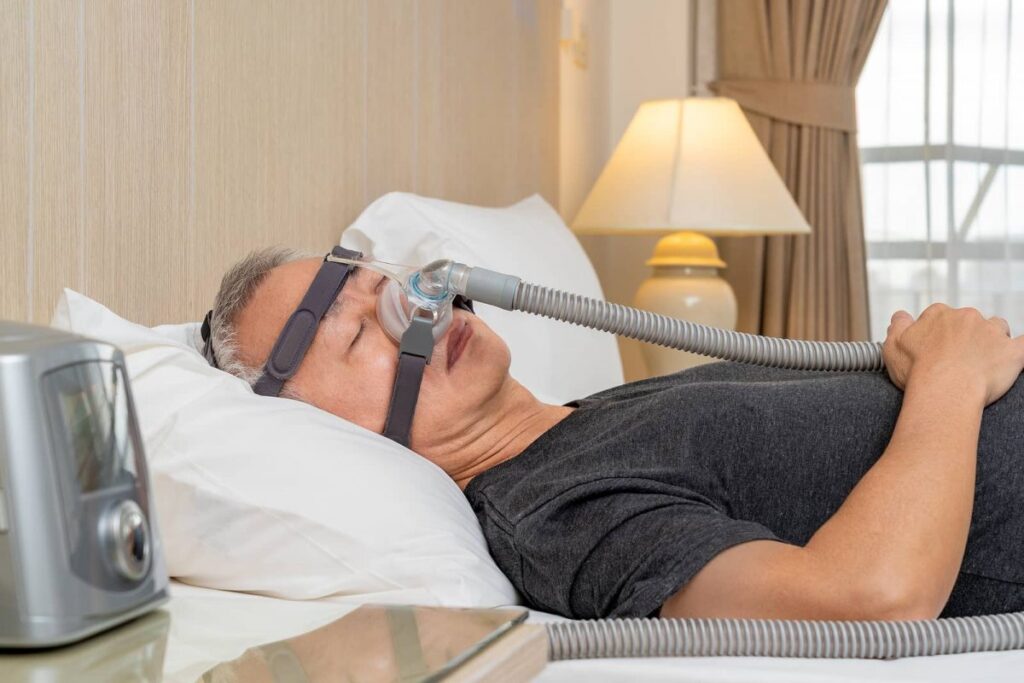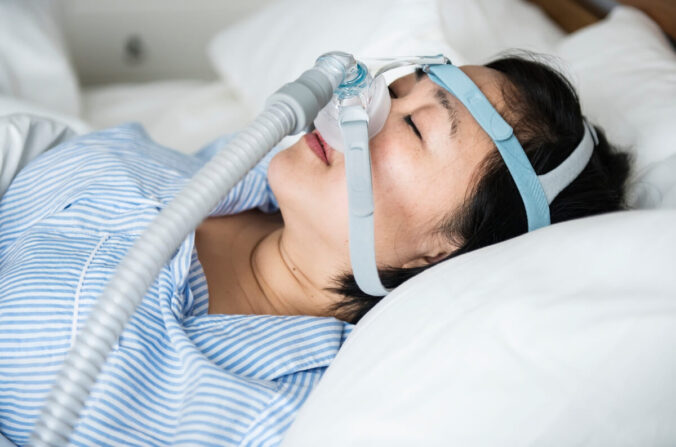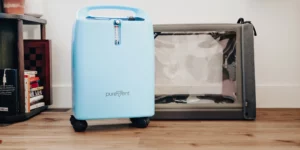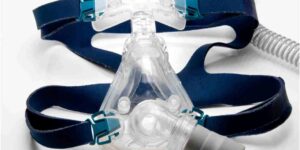Sleep apnea is a common sleep disorder that affects millions of Americans. It is a condition where a person’s breathing repeatedly stops and starts during sleep, leading to poor sleep quality and a range of other health issues. If you have been diagnosed with sleep apnea or suspect that you might have it, it is important to understand how Medicare can help cover the costs of sleep apnea tests and treatment options.
Understanding Medicare and Sleep Apnea
Before we dive into the specifics of Medicare coverage for sleep apnea, let’s first define what sleep apnea is and how it affects individuals. Sleep apnea is a disorder that causes interruptions in breathing during sleep, leading to brief periods of awakening throughout the night. These interruptions can result in excessive daytime drowsiness, high blood pressure, and other serious health risks.
Medicare is a federal health insurance program do sleep study cost medicare australia that provides coverage to people aged 65 and older, as well as individuals with certain disabilities or medical conditions. Medicare is divided into different parts, each covering different aspects of healthcare.
What is Sleep Apnea?
Sleep apnea is a sleep disorder characterized by pauses in breathing or shallow breaths during sleep. These interruptions in breathing can last anywhere from a few seconds to minutes and can occur multiple times throughout the night. Sleep apnea is often accompanied by loud snoring and a feeling of tiredness, even after a full night’s sleep.
There are three main types of sleep apnea:
- Obstructive Sleep Apnea (OSA): This is the most common form of sleep apnea and occurs when the airway becomes blocked or collapses during sleep.
- Central Sleep Apnea (CSA): This type of sleep apnea is less common and happens when the brain fails to send the proper signals to the muscles that control breathing.
- Complex/Mixed Sleep Apnea: This is a combination of both obstructive and central sleep apnea.
Each type of sleep apnea requires different treatment approaches and may have varying impacts on an individual’s overall health. You can get about the cost of sleep apnea test on https://hematologyjournal.net/understanding-the-cost-of-a-sleep-test-budgeting-for-better-sleep.

How Does Medicare Cover Sleep Apnea?
Medicare coverage for sleep apnea largely depends on the specific type of Medicare plan you have. In general, Medicare Part B, which covers outpatient services, may provide coverage for sleep apnea tests and diagnosis. However, it’s important to note that Medicare coverage can vary, so it is always best to check with your specific plan.
If you have a Medicare Advantage plan (Part C), your coverage for sleep apnea tests and treatment may differ from the standard Medicare coverage. Medicare Advantage plans are offered by private insurance companies approved by Medicare, and they often provide additional benefits beyond what original Medicare covers.
It’s worth mentioning that Medicare coverage for sleep apnea treatment options, such as continuous positive airway pressure (CPAP) machines or other devices, may also vary depending on the plan. Some Medicare plans may cover a portion of the cost, while others may require you to pay a deductible or co-payment.
It’s always advisable to consult with your healthcare provider and Medicare plan representative to understand the specific coverage details and requirements for sleep apnea treatment under your Medicare plan. They can provide you with the most accurate and up-to-date information based on your individual circumstances.
The Role of Medicare in Sleep Apnea Diagnosis
Getting an accurate diagnosis is the first step in effectively managing sleep apnea. Medicare can play a significant role in the diagnosis process by helping cover the costs associated with sleep studies and other diagnostic tests.
Understanding the intricate relationship between Medicare coverage and sleep apnea diagnosis is crucial for individuals seeking proper treatment for this common sleep disorder. By delving deeper into the specifics of how Medicare operates in this context, patients can navigate the healthcare system more effectively and access the necessary resources for their care. Learn more about the role of medicare in sleep apnea diagnosis on https://www.medicare.gov/coverage/sleep-studies.

Sleep Studies and Medicare
A sleep study, also known as a polysomnography, is one of the most common diagnostic tests used to diagnose sleep apnea. It involves spending a night at a sleep center or using a portable home sleep monitor to measure various bodily functions during sleep.
Medicare Part B may cover sleep studies if they are deemed medically necessary. However, prior authorization or a doctor’s referral may be required to qualify for coverage. It’s essential to check with your Medicare plan and healthcare provider to understand the specific requirements for coverage.
Moreover, the process of conducting a sleep study goes beyond the technical aspects of monitoring sleep patterns. It involves a multidisciplinary approach that includes sleep technologists, respiratory therapists, and physicians working together to analyze the data and provide a comprehensive evaluation of the patient’s condition.
The Process of Getting a Sleep Apnea Test
If you suspect you have sleep apnea and think you need a sleep study, the first step is to consult with your healthcare provider. They will evaluate your symptoms and medical history to determine if a sleep study is necessary.
If a sleep study is recommended, your healthcare provider will guide you through the process, including obtaining any necessary referrals or authorizations from Medicare. It is essential to follow their instructions and provide any requested documentation to ensure smooth and efficient coverage.
Furthermore, the collaboration between healthcare providers and Medicare in facilitating sleep apnea testing underscores the importance of a coordinated approach to healthcare delivery. By leveraging the resources and expertise of both medical professionals and insurance providers, patients can receive timely and accurate diagnoses, leading to improved management of their sleep apnea condition.
Coverage Details for Sleep Apnea Tests
Understanding what Medicare Part B covers when it comes to sleep apnea tests is crucial to avoid unexpected expenses.
When it comes to sleep apnea tests, Medicare Part B plays a vital role in providing coverage for beneficiaries. This coverage extends to various aspects of the testing process, ensuring that individuals have access to necessary diagnostic services without facing exorbitant costs. Find more at https://dictionary.cambridge.org/example/english/exorbitant-cost
What Does Medicare Part B Cover?
Medicare Part B typically covers 80% of the Medicare-approved amount for sleep apnea tests and related services. This includes the cost of the sleep study, any necessary consultations, and the interpretation of test results by a qualified healthcare professional.
Moreover, Medicare Part B coverage for sleep apnea tests underscores the importance of timely and accurate diagnosis in managing this sleep disorder effectively. By shouldering a significant portion of the financial burden, Medicare aims to facilitate access to essential healthcare services for beneficiaries.
It’s important to note that with Medicare Part B, you are responsible for the remaining 20% of the approved amount, as well as any deductible that may apply.
Out-of-Pocket Costs for Sleep Apnea Tests
While Medicare covers a significant portion of sleep apnea test costs, it’s important to be aware that there may still be out-of-pocket expenses. These can include deductibles, copayments, and any additional costs associated with the sleep study.
Understanding the nuances of out-of-pocket costs for sleep apnea tests is essential for beneficiaries to effectively plan for their healthcare expenses. By proactively engaging with their Medicare plan and seeking clarification on coverage details, individuals can navigate the financial aspects of sleep apnea testing with greater confidence.
To better understand your potential out-of-pocket costs, it is recommended to contact your Medicare plan and discuss the specifics of your coverage.
Options for Sleep Apnea Treatment Through Medicare
Once a diagnosis of sleep apnea has been made, it’s essential to explore and understand your available treatment options. Medicare provides coverage for various sleep apnea treatment options, ensuring that you can receive the care you need.
Continuous Positive Airway Pressure (CPAP) Therapy Coverage
Continuous Positive Airway Pressure (CPAP) therapy is one of the most commonly prescribed treatments for sleep apnea. It involves wearing a mask over the nose or mouth during sleep, which delivers a constant flow of air to keep the airway open.
Medicare typically covers a portion of the costs associated with CPAP therapy, including the rental or purchase of the CPAP machine and supplies, such as masks and tubing. However, coverage details can vary, so it’s important to check with your specific Medicare plan for exact coverage information. Find more click here
Other Treatment Options and Their Coverage
In addition to CPAP therapy, there are other treatment options available for sleep apnea, such as oral appliances, positional therapy, and surgery. Medicare may provide coverage for these alternative treatments if they are deemed medically necessary and meet specific criteria.
It is essential to consult with your healthcare provider to determine which treatment option is best for you and to understand the coverage details and requirements under your Medicare plan.
Frequently Asked Questions About Medicare and Sleep Apnea
Here are answers to some common questions regarding Medicare coverage for sleep apnea:
Does Medicare Cover Home Sleep Apnea Tests?
Yes, Medicare may cover home sleep apnea tests if they are deemed medically necessary. Home sleep apnea tests can be performed in the comfort of your own home and are a more convenient and cost-effective alternative to in-lab sleep studies. However, prior authorization may be required, so it’s crucial to follow the guidelines of your particular Medicare plan.
What If Medicare Denies Coverage for My Sleep Apnea Test?
If Medicare denies coverage for a sleep apnea test or related services, you have the right to appeal the decision. It’s important to work with your healthcare provider and Medicare plan to understand why the coverage was denied and to gather any necessary documentation or evidence to support your appeal.
Engaging in open communication with your healthcare provider and staying informed about your Medicare coverage can help you navigate the process and ensure that you receive the sleep apnea test coverage you need.In conclusion, Medicare can play a crucial role in the diagnosis and treatment of sleep apnea. Understanding the specific coverage details and requirements under your Medicare plan is essential to ensure that you receive the coverage you need for sleep apnea tests and treatment options. By working closely with your healthcare provider and staying informed about your Medicare benefits, you can navigate the complex world of Medicare and sleep apnea with confidence.




